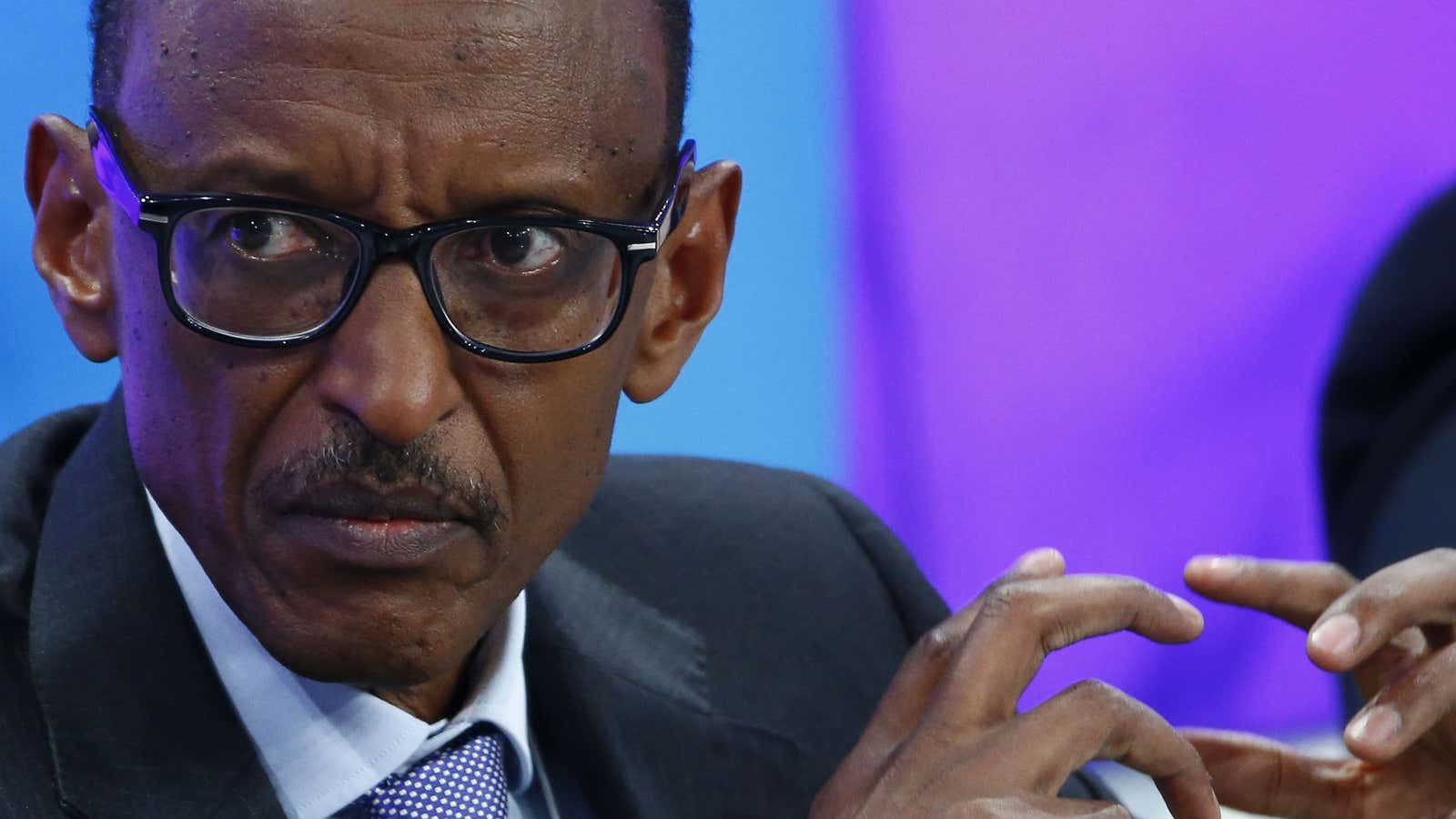Can a president really be that popular? The New Times, a Rwandan daily, reports that after a three-week countrywide consultation of “millions of Rwandans,” the country’s lawmakers found only 10 people who were against letting Paul Kagame run for a third term as president.
That figure may not be quite as ludicrous as it sounds. The consultation came after parliament received (or so it says) nearly 3.8 million signatures—in a country of 12 million people—on a petition calling for a constitutional amendment to abolish term limits. Kagame, who has been president since 2003 and (as vice-president and defense minister) was seen as the de facto leader for years before that, is widely credited with advancing economic and social progress in Rwanda, 21 years after the 1994 genocide in which 800,000 people were killed.
The World Bank reports that from 2001 to 2014, the country’s real GDP growth averaged 9% per year, and the poverty rate dropped from 59% in 2001 to 45% in 2011. There is near-universal primary school enrolment, and child mortality has fallen by over 60% since Kagame became president, having already fallen sharply after the end of the civil war.
Despite these achievements, there are also criticisms of press suppression (paywall) and concerns over human-rights violations under Kagame’s watch. A 2014/2015 Amnesty International Report mentions assassinations of political dissidents in Rwanda and in foreign countries, harassment and intimidation of human-rights groups, and arbitrary and unlawful arrests and detentions by the country’s military.
So while Kagame may enjoy genuine support among Rwandans, it would be surprising if at least some of it weren’t artificially manufactured. In testimony (pdf, p. 2) to the US Senate’s foreign affairs subcommittee in May this year, Sarah Margon, Washington director of Human Rights Watch, argued that with a 93% electoral majority, a weak independent civil society, and a constrained press, Kagame’s ruling party—the Rwandan Patriotic Front (RPF)—controls dominates all aspects of political and public life in the country, leaving no space for meaningful opposition. There have been reports of people being pressured to sign the petition to abolish term limits, or of not knowing what they were signing.
Though he may have earned his popular acclaim honestly, Kagame now looks like falling prey to Africa’s “Big Man” syndrome of staying perpetually in power. If he had the country’s true interests at heart, he might devote himself to creating the conditions for a competent successor. But judging by his response to one person on Twitter who questioned Kagame’s long reign, that’s not where his intentions lie.
